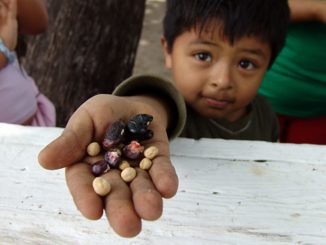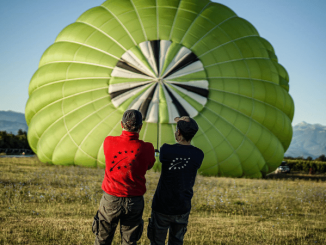Bari, Italy, 11 September 2014 – From EU to national and regional level, policy-makers and organic stakeholders agree: the EU must support the development of the organic sector across Europe to achieve a sustainable agricultural system that benefits people and planet. “Our goal is to create a sustainable model of agriculture based on distinctiveness, competitiveness and innovation. In this context, organic farming is a strategic sector for Italy and for all Europe.” This was the message of Maurizio Martina, Italian Minister of Agriculture, at the 8th European Organic Congress currently taking place in Bari, Italy. “We are using the Italian Presidency of the European Council to tackle the proposal for a new EU regulation. Another decisive date for the entire food industry and the challenges of the future will be Expo 2015, which will be a moment of collective reflection on crucial issues such as food security.”
Alina-Stefania Ujupan, Deputy Head of Cabinet for Dacian Cioloş, European Commissioner of Agriculture and Rural Development, said: “The organic sector has made dramatic progress in recent years, and there is scope for continued growth – above all if consumer confidence remains strong. The organic package proposed by the Commission is aimed at improving the framework in which the organic sector can develop. This is important in order to maintain the credibility of the EU organic logo. The Commission is attaching great importance to this package and to a continued and fruitful dialogue with all stakeholders in this field.”
Speaking to stakeholder concerns that new regulation could hinder development, Paolo De Castro, Member of the Committee on Agriculture and Rural Development of the European Parliament, stressed: “Organic continues to develop dynamically all over Europe. However, the Parliament is well aware that there are some concerns in the organic sector about the Commission’s proposal for a new Organic Regulation. Therefore I will guarantee an active participation of the sector in each step of the process in order to ensure a regulation that balances principles and feasibility, and ensures the continuous growth of organic farming.”
Francesco Schittulli, President of the Provincial Authority of Bari welcomed the congress participants, saying: “The importance of the growing organic sector in the province of Bari cannot be neglected, and initiatives to strengthen the sector in the region by policy-makers will be met with great enthusiasm by the Provincial Authority.”
Cosimo Lacirignola Secretary-General of CIHEAM, the Mediterranean Agronomic Institute of Bari, co-organiser of the event, stated that; “Figures show that Organic Agriculture is a great opportunity not only for Italian agriculture but also for Europe and for the Mediterranean basin. Producing more and polluting less is the greatest challenge and requires smart growth. This is the main task that CIHEAM has been performing over the years: adjusting knowledge to the needs of territories. Innovating through education and training means understanding the needs of territories in order to identify scientific solutions to combat hunger, desertification, water scarcity, loss of biodiversity.”
Building on the benefits of alternative agroecological methods of farming, Arie van den Brand, from the Groupe de Bruges and ARC 2020, said: “ARC2020 sees agroecology as a great opportunity to bring farmers, researchers and activists together. Agroecological approaches can be applied everywhere in the food system, from the European Innovation Partnership’s practical work with science and farming, to shorter supply chains linking producers and consumers. By playing our part in uniting producers, science and social movements, we can all work together to help Europe begin to develop a coherent, holistic, agri-food policy, one that really works for its citizens.”
IFOAM EU President Christopher Stopes stressed the need to back up good initiatives with the right tools for successful implementation: “The Commission has renewed their commitment to organic farming by launching a new European Organic Action Plan outlining the important role organic production plays for the sustainable development of agriculture. It is now crucial that the Commission and Member States implement a concrete plan to stimulate the growth of organic production in Europe. This can be done by launching an organic innovation programme under Horizon 2020 and transnational research schemes, as well as providing strongly support for organic production within the new rural development programme and a balanced approach to the further development of the EU organic regulation working together with policy makers.”
Organic stakeholders at the 8th European Organic Congress are gathered in Bari to meet policymakers and decision makers from the Italian EU Presidency, the European Commission, and Parliament and to discuss the opportunities and challenges that lie ahead for EU organic food and farming. Focal points are the new Rural Development Programmes, the European Innovation Partnership for Agriculture and the Organic Regulation Review.
The 8th European Organic Congress is organised by IFOAM EU, the CIHEAM-IAM Bari (Mediterranean Agronomic Institute of Bari), the Italian Ministry of Agriculture and the Italian EU Presidency.
For more information contact IFOAM EU at + 32-2-280 12 23, info@ifoam-eu.org or visit www.ifoam-eu.org







